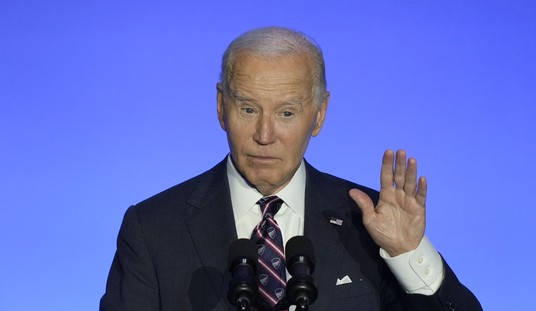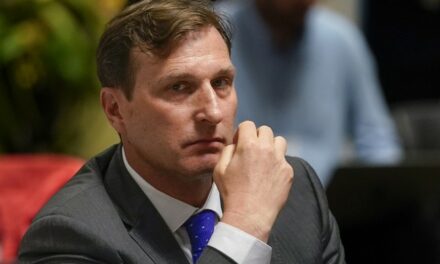We support our Publishers and Content Creators. You can view this story on their website by CLICKING HERE.
“The U.S. government’s debt load is now seen as the biggest risk to financial stability,” reads a tweet by Fortune Magazine.
The US government’s debt load is now seen as the biggest risk to financial stability. Even more than inflation. https://t.co/Rj0Jrr5gFI
— FORTUNE (@FortuneMagazine) November 23, 2024
Advertisement
The national debt must be addressed. More than $36 trillion in total U.S. public debt outstanding is a problem. The problem of it will continue until steps are taken to deal with it. As it grows at an increasingly steep pace, the problem of it becomes more burdensome, and what is needed to deal with it becomes more overwhelming.
A ballooning national debt has been a problem for many years. Too few politicians and elected leaders have discussed how to practically and actually deal with the problem, and too few have allocated political capital toward practically and actually dealing with it. The national debt should be a top political priority, and there should be a vigorous ongoing debate about what significant measures should be taken to rein it in. The center of the national debt debate should not be whether or not to do anything about the problem. The debt debate should not be about whether modest or significant measures should be taken to deal with it. The debate should concern which significant measure, a policy that will unequivocally reduce the national debt, is appropriate to deal with the problem. The national debt bill will eventually be paid. The longer it is allowed to grow at an increasingly steeper pace, the more expensive that bill becomes.
That the effects of government-growing policies trickle down to individuals, families, and businesses is something Democrats, based on the agenda they push, do not seem to understand. Democrats spend government dollars. They campaign making no secret of their intention to spend, and in office they continue to push an agenda filled with government spending. One of the first steps (if not the first) to deal with the national debt problem is the cessation of reckless spending. The national debt elephant can be eaten one bite at a time, which is one cut of egregiously wasteful spending at a time. These days, it is rare to hear a Democrat offer as much as lip service to the need to eliminate wasteful spending, to the need to balance the federal budget, or to the need to rein in the national debt. The Democrat agenda contravenes the steps that need to be taken to address the national debt, yet Democrats continue to win elections. There is a gigantic gulf between where the national debt debate should center, as outlined in the preceding paragraph, and where the national debt debate too often falls. A primary cause of the debate needle shifting is that Democrats, who demonstrate no effort toward reining in the national debt, continue to win elections.
Advertisement
President Joe Biden and congressional Democrats have not sought to reduce the tax burden on individuals and businesses so that the creative mechanisms of a free market can produce more wealth, benefitting the entire nation. They have not sought to deregulate so that government-created bureaucratic obstacles are removed from companies and industries. They could have done more to help unleash U.S. energy production capability so that our nation is increasingly energy free and less beholden to foreign energy producers. President Biden and congressional Democrats have not sought to reduce out-of-control spending by the federal government, spending that has been doled out in an economic environment of high inflation (the Consumer Price Index reads a 2.6 percent increase for all items from October of 2023 to October of 2024, which is indicative of a higher rate of price increases than the Federal Reserve’s repeatedly-stated inflation goal, 2 percent).
The Fortune tweet comparatively attributes more financial stability risk from the national debt than inflation. “Even more than inflation,” it reads. But that, as illustrated by the following tweet by the Federal Reserve Bank of St. Louis, is not to diminish the catastrophic effects high inflation is having on the economy.
Advertisement
Unexpected inflation can affect households quite differently, depending on the levels of assets and liabilities that they hold. This analysis looks at how the 2021-22 inflation shock may have affected household wealth https://t.co/eIzfLcW2ak pic.twitter.com/wQ1PI46VJX
— St. Louis Fed (@stlouisfed) November 23, 2024
The high inflation that is occurring and has occurred during Biden’s presidency is horrible, as are its consequences. A slight cost of living increase periodically is an economic norm, but prolonged high inflation is not. The strain (or tax, a more appropriate term) on the macro economy caused by high prices would be difficult to quantify. High inflation persists because of failed economic policies.
All the while, the Biden administration and congressional Democrats have not attempted to reverse course toward a lesser of government, pro-growth set of policies.

 Conservative
Conservative  Search
Search Trending
Trending Current News
Current News 






